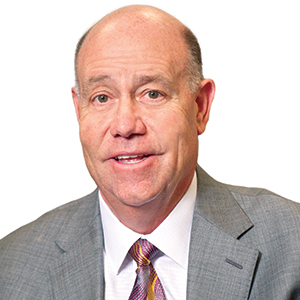Finding the right partner is all about “The Who” — who you go into business with, who you marry, who you associate with and who you trust. “The Who” is the variable that can determine your success or failure. I learned this the hard way, early on, with a business partner.
I knew that if I worked 90 percent harder than the rest, I’d be successful. And I was determined to make things work with this associate, even with some of the challenges and emotional concerns he brought into the office. I thought if I worked harder, smarter and faster, I’d counteract some of his behaviors. He was into long lunches and late nights out. I was into morning, noon and dinner meetings with potential clients, late nights at the office and weekends spent drumming up business. I was into work. He was into other things.
Eventually, I could no longer take it. I knew he was using me to some extent. He could continue to grow the business as long as I kept producing at a high level. Basically, he shifted the stress of generating revenue off of himself when he brought me on because of my work ethic.
I knew I needed to have a serious conversation with him, and I had put it off for some time. What was intended to be a partnership with this associate — working together to achieve goals — ended up being me giving everything to the business and him essentially checking out.
I thought about how to approach him. How could I bring these behaviors to light without degrading his knowledge and experience? I knew that I owed it to myself and my family — and, importantly, to our clients — to make things right with the relationship. And that meant giving him six months’ notice: If things did not change, we’d have to go our separate ways. I would continue to grow the business, without him.
He agreed to change, so I accepted his wish to continue as an associate and focus on the business and our clients. However, practically as soon as he said, “Let’s work it out,” he went back to his ways.
During this time, I was newly married and had small children at home. My family depended on me to provide for them. I was not working for myself — I was trying to build a successful business so I could create a promising future for my wife and kids, for all of us. I knew my associate was dragging me down. I was so frustrated, working so hard, feeling bogged down and worn out by his lifestyle choices. This was not the type of business I wanted to be a part of, or more or less steer.
I decided that I needed to back out, and there was risk in that. But with great risk comes reward. That risk was leaving to start The Fedeli Group. I took with me the lessons I learned from working with respectable professionals. People must trust you before they will do business with you. They must respect you. Who you associate with has a direct impact on your ability to succeed.
This all goes back to making decisions based on “The Who.” That is never easy. When you leave an associate, or break off a partnership, that’s a tough discussion to initiate and an even more challenging decision to implement. But consider what you stand for, who you want to be. Who are you as a leader, community member, parent and friend? Who you associate with makes all the difference.
Having a great partnership is very similar to having a great marriage. Great partners, like great husbands and wives, have the most success when each person puts the interests of their partner ahead of their own. Although they may have different skills, experience and abilities, they have an alignment of interests, similar goals and shared values. ●
Umberto P. Fedeli is CEO of The Fedeli Group

